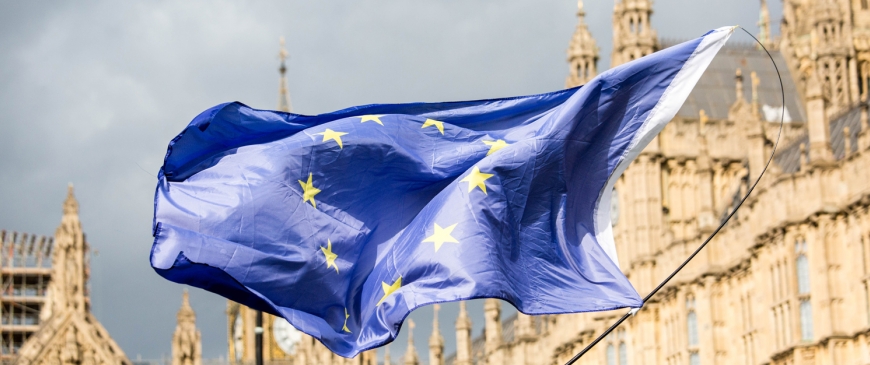
MPs have been given a say on Brexit — they should use it
Last month the House of Lords sent Theresa May a clear message — Brexit does not have to mean her version of Brexit. They defied party loyalties, forcing the Commons to reconsider several important parts of the government’s Withdrawal Bill.
One Lords amendment would force the government to take instructions from parliament on what to do next if MPs rejected the final withdrawal deal or if there were no agreement by February 28, 2019.
The government has tried to dilute this so-called “meaningful vote amendment” by putting forward an alternative text “in lieu”. But the government’s amendment merely commits it to make a statement about its plans within 28 days if lawmakers vote down the Brexit deal.
When MPs vote on Tuesday they should stick to their guns and pass the Lords amendment. It gives them an opportunity to transform parliament from a bystander into an active player in the Brexit talks.
If the amendment is approved, parliament would have to take responsibility for choosing between a number of difficult options if it rejects the Brexit deal.
First, it could instruct the government to leave the EU without a deal. The government’s own analysis shows that this would do serious damage to the economy. Unsurprisingly, there appears to be no majority in Westminster for this drastic course of action.
Second, lawmakers could ask the prime minister to scrap Brexit altogether. The chances of that seem equally slim. While the Conservatives and Labour disagree on Britain’s future relationship with the EU, neither wants to be accused of frustrating the “will of the people”.
Third, parliamentarians could instruct the government to hold another referendum, this time on whether to approve May’s withdrawal agreement.
A group of pro-EU MPs, business representatives and celebrities, who are behind People’s Vote campaign, think that British voters have realised by now that what is on offer falls short of the sunlit uplands they were promised; they hope that if voters were given another chance they would vote to stay in the EU.
A recent analysis of YouGov polls seems to suggest that about one million Labour voters who backed ‘Leave’ in the referendum in 2016 may be having second thoughts. But unless there is a clear shift in public opinion, the Labour leadership would be reluctant to support another plebiscite.
That leaves option four: parliament could reject the deal and force the government to return to the negotiating table in Brussels. Sir Keir Starmer, Labour’s Brexit point man, has said that this would be the party’s preference if parliament rejected May’s withdrawal package.
He has insisted, however, that before Labour takes a decision on how to vote, it will apply its six tests to the Brexit deal. One of the tests is that “any Brexit deal should not deliver less benefit than the UK currently has as a member of the EU’s single market and its customs union”.
But no Brexit agreement can deliver that, so Labour could vote against the withdrawal package, which will consist of the exit treaty and a political declaration on the future relationship.
Pro-EU Tories agree that the prime minister’s original Brexit plan to withdraw from the single market and customs union would hurt British businesses.
By voting together with Labour in favour of the Lords’ amendment they would increase pressure on the prime minister to soften her red lines on the post-Brexit economic relationship with the EU; they would be warning May that if she did not take on board their concerns they would reject the Brexit package and force her to return to Brussels.
Michel Barnier, the EU’s chief negotiator, has argued that the EU-27 will not budge on the withdrawal terms. Neither can the prime minister expect EU leaders to easily agree to extend the Article 50 talks. But the European Council made clear that it is ready to adapt its guidelines on the future relationship if Britain’s red lines shifted.
The “meaningful vote” amendment gives MPs an opportunity to match the level of parliamentary scrutiny over Brexit enjoyed by the European parliament. It must ultimately approve the Brexit deal, and MEPs have used that veto to influence the Brexit talks even though they do not have a formal role in the negotiations.
As the Brexit talks have progressed, Barnier has regularly consulted MEPs and taken on board their concerns to be sure of securing their consent at the end of the process.
The government has warned potential rebels that they would be betraying the will of the people if they decide to vote in favour of the Lords’ amendment.
But MPs who disagree with May’s version of Brexit should resist these threats. British parliamentarians often complain that the prime minister has tried to keep them in the dark about the Brexit talks.
The meaningful vote amendment enables Parliament to take back some control of the Brexit process, and assert parliamentary sovereignty — supposedly at the heart of the decision to leave the EU.
Agata Gostyńska-Jakubowska is a senior research fellow at the Centre for European Reform
